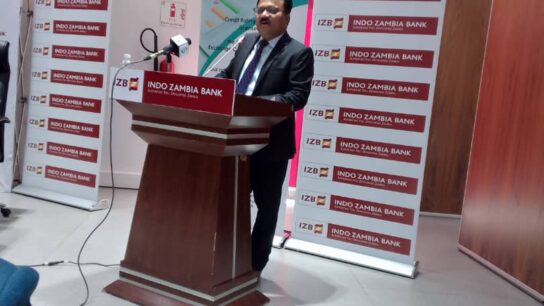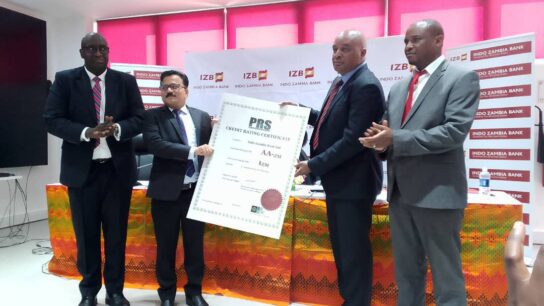The International Monetary and Finance Committee of the IMF observes the need for greater collaboration to enhance debt transparency and sustainable financing practices by debtors and creditors.
The committee says global expansion remains strong though risks are increasingly skewed to the downside amid heightened trade tensions and ongoing geopolitical concerns, with tighter financial conditions particularly affecting many emerging market and developing countries.
The IMFC is the highest ranking organ of the IMF and comprises the IMF Board of Governors Ministers of Finance and Governors of the Central Bank from 189 member states and the Executive Board of the IMF.
In a joint statement issued at the 2018 IMF/World Bank Annual Meetings in Bali, Indonesia, by the Chairman of the IMFC Lesetja Kganyago who is also South African Reserve Bank Governor, and IMF Managing Director, Christine Lagarde, the IMFC has pledged to facilitate multilateral solutions for global challenges and has also offered to support the IMF’s continued role in international tax issues and domestic resource mobilization, including through the Platform for Collaboration on Tax.
The statement indicates that the IMFC looks forward to reviews of the debt sustainability framework and the debt limits policy for market access countries.
The IMF has been asked to continue working with members to strengthen fiscal frameworks, improve debt management capacity, and implement the updated debt sustainability framework for LIC’s.
Mr. Kganyago and Ms. Lagarde expressed the IMFC’s support for the IMF-World Bank multi-pronged approach to work with borrowers and creditors to improve the recording, monitoring, and transparent reporting of public and private debt obligations, as well as efforts to strengthen creditor coordination in debt restructuring situations.
To address concerns about rising debt vulnerabilities in many countries, Mr. Kganyago and Ms. Lagarde stated that work to enhance debt transparency and sustainable financing practices by debtors and creditors, both public and private, and to strengthen creditor coordination in debt-structuring situations, is in progress.
The statement has also recognized the need to continue stepping up dialogue and actions to mitigate risks and enhance confidence in international trade.
To support this, the IMFC has pledged to continue working for a fair and modern international tax system; strengthening collaboration to liberate financial technology while addressing associated risks; and, tackling sources and channels of money-laundering and other illicit finance.
The IMFC has further stated that with the window of opportunity narrowing, prompt action will be taken to advance policies and reforms to mitigate risks, rebuild policy space, enhance resilience, and raise medium-term growth prospects for the benefit of all.
The IMFC has indicated that fiscal policy should rebuild buffers, where needed; be flexible and growth-friendly; avoid procyclicality; and raise the quality of infrastructure and workforce skills, while ensuring that public debt is on a sustainable path.
They have further noted that strong fundamentals, sound policies, and a resilient international monetary system are essential to the stability of exchange rates, contributing to strong and sustainable growth and investment.
“Advancing financial and structural reforms is critical element in lifting potential growth and employment and strengthening resilience, while effectively assisting those bearing the cost of adjustment,” Mr. Kganyago and Ms. Lagarde, have stated.
“We will continue to work for a globally fair and modern international tax system, and where appropriate, address competition and tax challenges, including from digitalization,” the statement read in part, and further indicated that collaboration will be strengthened to leverage efficiencies and inclusion in financial technology while addressing associated risks, and tackling sources and channels of money laundering and terrorism financing, proliferation financing, corruption, and other illicit finance.
Minister of Finance Margaret Mwanakatwe, Minister of National Development Planning Alexander Chiteme, Secretary to the Treasury Fredson Yamba, Bank of Zambia Governor Dr. Denny Kalyalya, Ministry of National Development Planning Permanent Secretary Chola Chabala, and Ministry of Finance Permanent Secretary for Finance and Economic Development Mukuli Chikuba attended the 2018 International Monetary and Finance Committee Meeting of the IMF.
This is contained in a statement issued to Money FM News by Ministry of Finance Head of Public Relations Chileshe Kandeta.








